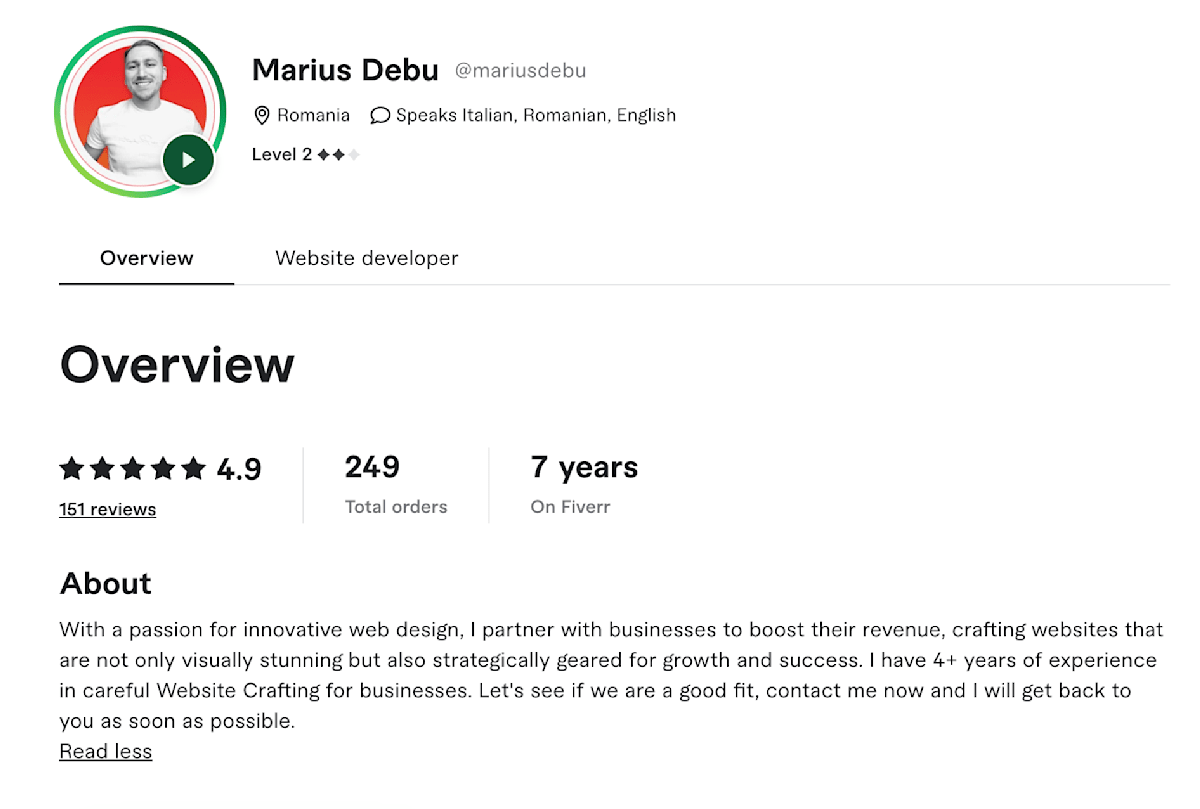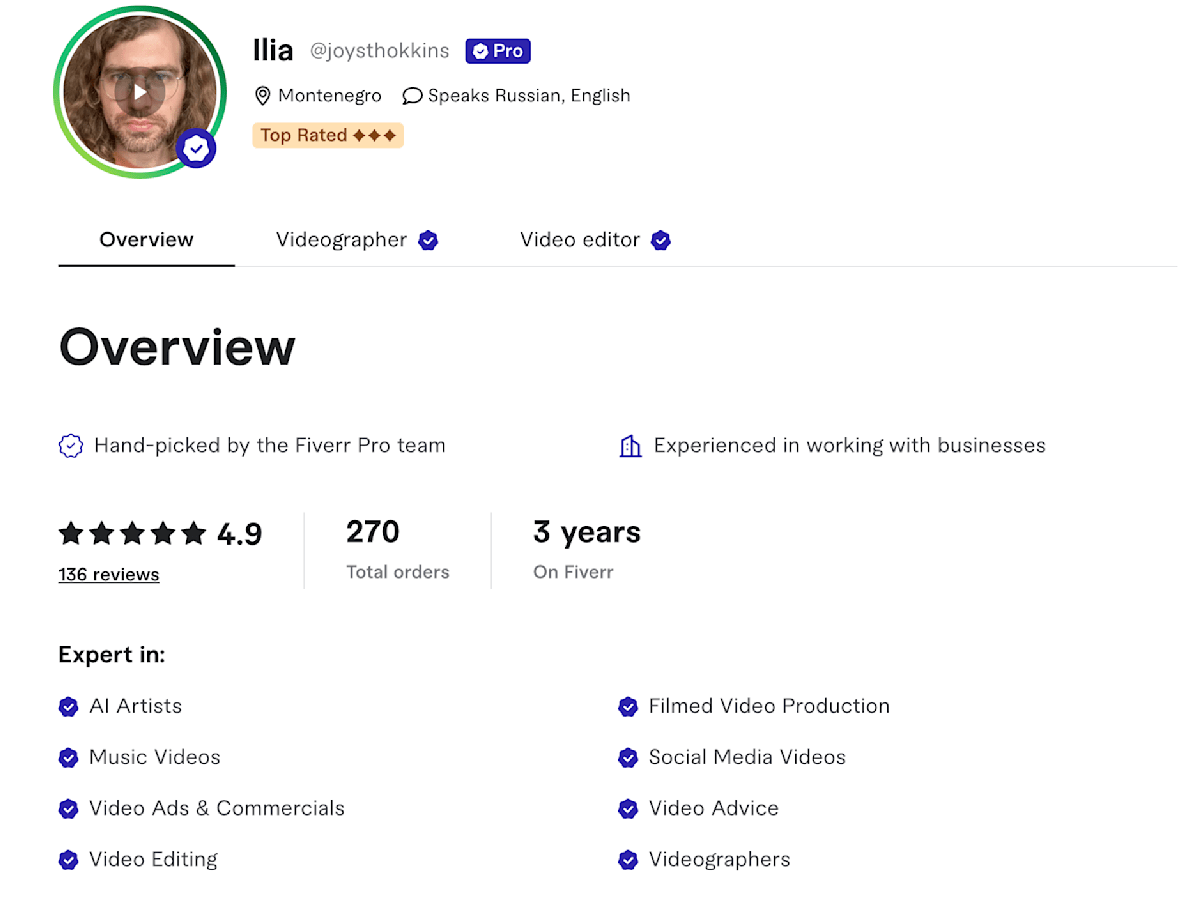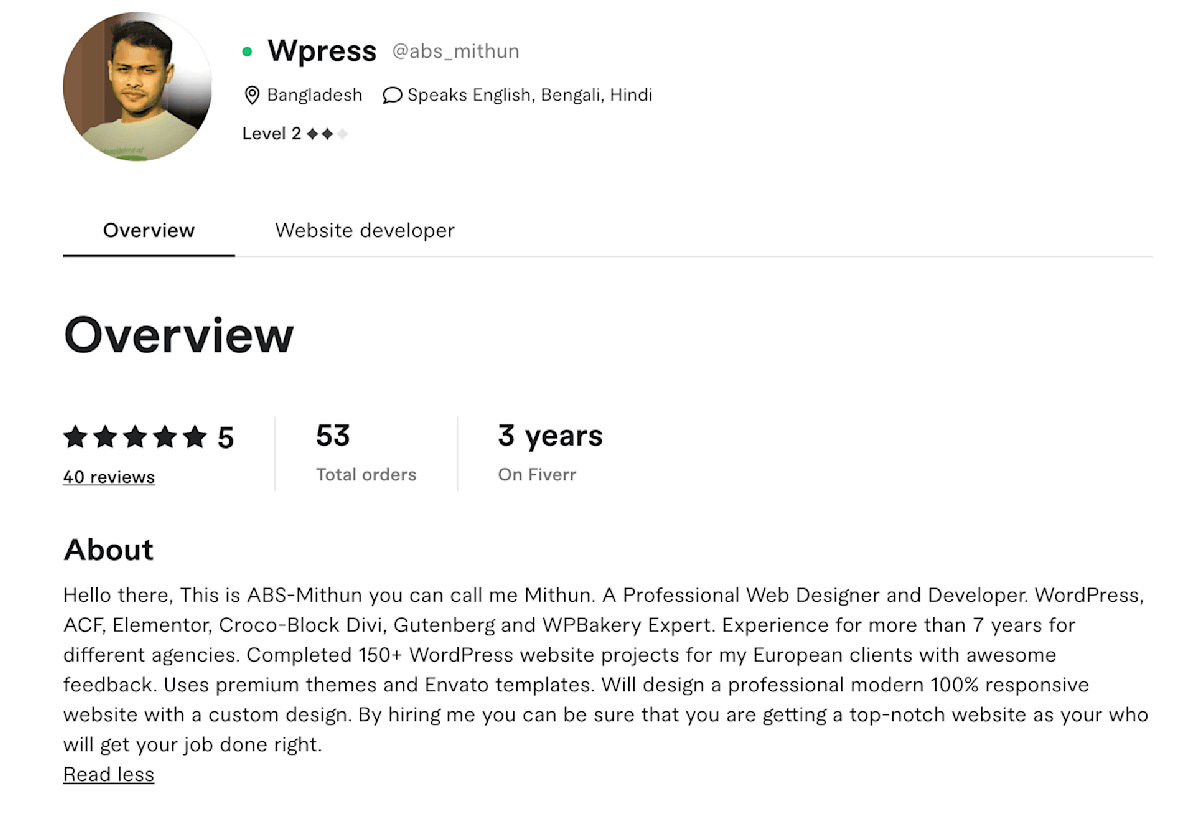How to Set Freelance Rates: Expert Advice
Setting fair freelance rates is key to success. Calculate costs, factor in project complexity, and highlight your value to create pricing that works for you and your clients.
 January 21, 2025
January 21, 2025 5 minute reading
5 minute reading
Setting fair rates for freelance work is essential for building a sustainable career. A fair pricing model benefits freelancers by helping them earn enough to cover expenses and grow professionally while clients gain trust in the value they receive.
Whether determining how to set hourly rates in freelancing or pricing projects based on complexity, finding the right approach is key for any freelancer—writer, content strategist, business consultant, or beyond.
To help you out, we’ve gathered advice from experienced Fiverr sellers who share practical strategies for creating pricing structures that work.
💡TL;DR
Do’s
Calculate all expenses, including taxes and software costs, when setting rates
Adjust rates based on the scope, duration, and required skills for the project
Reflect the impact your work has on the client’s success in your pricing
Stay competitive by understanding industry standards and regional pricing differences
Increase rates as demand and expertise grow
Explain pricing factors clearly to clients, building trust and alignment.
Dont's
Ignore business costs, leading to unsustainable pricing
Charge a flat rate for vastly different project types.
Undervalue your work by focusing only on hours spent
Price arbitrarily without considering what similar professionals charge
Keep the same rates indefinitely, risking burnout or undervaluation
Leave clients guessing why your rates are set as they are
1. Understand the cost of doing business
Freelancers should first calculate their living expenses as well as their business costs, including things like hardware, software, and utilities.
One website development expert explains:

“When pricing my work, I start with a simple formula: Real costs (hardware, software, rent, bills, office expenses, taxes) + profit I want to make. This ensures I don’t lose money on projects.”
Connect with FreelancerStarting with this as the foundation for setting prices helps guarantee rates cover the cost of living and business expenses and also offers a sustainable profit margin. Pricing that fails to account for these costs can lead to financial stress and an unsustainable workload over time.
2. Consider project complexity and scope
Pricing should always align with the complexity and scope of the project. A larger, more intricate project will naturally require more time, effort, and specialized skills, which should be reflected in the rate.
One video editing professional highlights this approach:

“For a video editor, pricing depends on factors like video duration, required effects, and the type of video—whether it’s a wedding video, motion graphics, or YouTube content.”
Connect with FreelancerThis focus on project-specific requirements allows freelancers to customize their pricing while helping the client understand what goes into the cost.
3. Use value-based pricing for high-impact projects
Value-based pricing focuses on the results the freelancer delivers to the client. Projects directly impacting a client’s revenue, brand, or growth often warrant higher fees. This approach shifts the conversation from hours worked to the tangible outcomes of the freelancer’s expertise.
A video and animation specialist illustrates this concept:

“Beyond time, I consider the value I’m providing to the client. For instance, if my work significantly contributes to their business success, I may adjust my pricing to reflect this added value.”
Connect with FreelancerBy emphasizing value rather than time, freelancers can charge rates that reflect the true impact of their work.
4. Research market rates and stay competitive
Understanding market rates helps freelancers position themselves competitively while maintaining fairness. However, market research is just a starting point—freelancers should also consider their unique skills, location, and client base when setting prices.
One vocal arranger explains the challenge of balancing global market rates with local economic factors:

“My currency and lifestyle differ from other countries. Finding a balance where I can feel comfortable and not sell below value isn’t as easy as it seems.”
Connect with FreelancerThis insight highlights the importance of pricing strategies that go beyond general or global benchmarks. Freelancers need to evaluate how their offerings stand out in the market and communicate the value they bring to clients. By doing so, they can justify higher rates and build stronger, long-term relationships with clients who recognize and respect their expertise.
5. Adjust rates based on experience and demand
As freelancers gain experience and build a strong portfolio, their rates should evolve to reflect their growing expertise and reputation. Incremental price increases allow freelancers to manage demand effectively and focus on high-quality projects.
A freelancer shares their journey:

“I started, like most freelancers probably, with $5. When I got so many orders that I couldn't keep up with them, I raised my rates even more.”
Connect with FreelancerRegularly revisiting and adjusting rates is essential for maintaining a sustainable workload and aligning with the freelancer’s professional growth.
6. Communicate value and build trust
Transparent communication about pricing builds trust and sets clear expectations. Clients who understand the factors influencing a freelancer’s rates are more likely to view the cost as an investment rather than an expense.
One translator describes this approach:

“I assess the project’s complexity and explain the factors influencing the price. This builds trust and ensures clients understand the value of my services.”
Connect with FreelancerOpen discussions about rates help build stronger client relationships and create a foundation for repeat business and referrals.
Set rates for long-term success
Setting freelance rates involves balancing costs, market trends, and the value provided to clients.
Factoring in expenses, project complexity, and client goals helps freelancers achieve financial stability while building strong, lasting client relationships.



